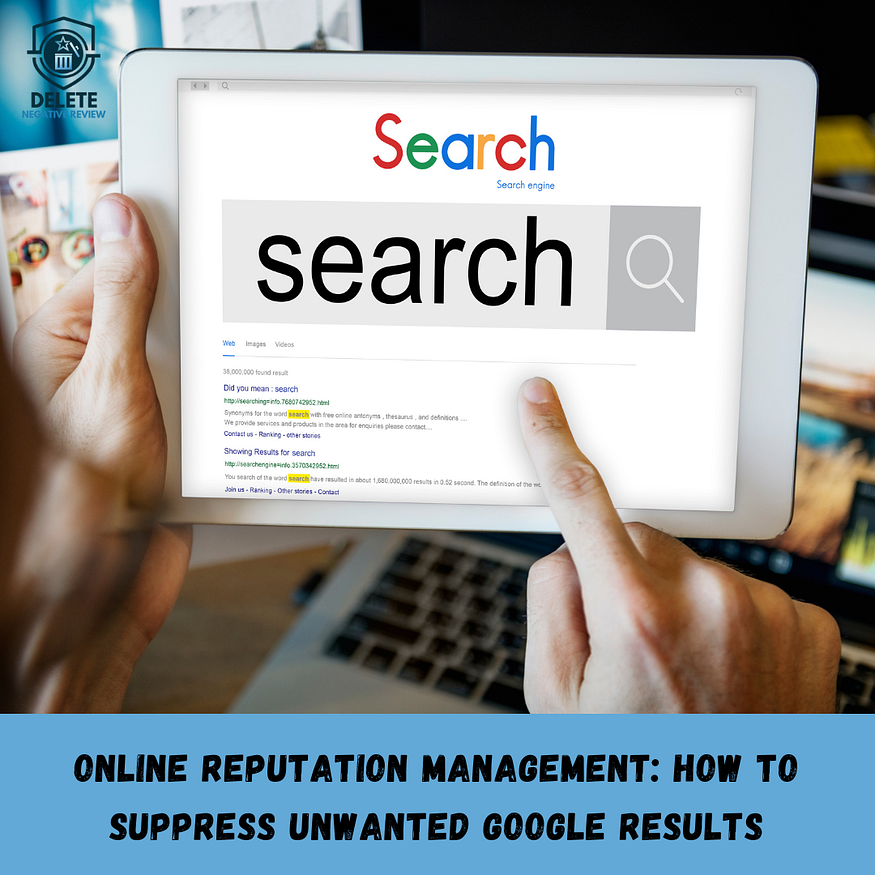Online Reputation Management: How to Suppress Unwanted Google Results

In today’s digital landscape, your online reputation can significantly impact your personal and professional success. Negative content can surface in search engine results, affecting credibility and trust. Fortunately, negative content suppression strategies can help manage and mitigate such issues. In this guide, we’ll explore how to effectively suppress negative Google results and protect your brand’s image.
Understanding the Impact of Negative Search Results
When potential clients, employers, or business partners search for you or your company online, they often base their first impression on what appears in search engine results. Negative articles, reviews, or misleading content can push negative results down in rankings, making it harder for your positive content to be seen.
Strategies to Suppress Negative Google Results
1. Optimize Positive Content
One of the most effective ways to manage negative search results is by creating and optimizing high-quality, positive content. Google ranks authoritative, engaging, and relevant content higher, so producing consistent, keyword-rich material can naturally outrank negative links.
- Publish authoritative blog posts on your website
- Leverage social media platforms for brand reinforcement
- Optimize your LinkedIn, Twitter, and Facebook profiles
- Contribute guest articles to reputable sites
2. Engage a Delete Negative Review Company
Professional delete negative review company services specialize in reputation management, working to remove negative content or de-index harmful content from search engines. While removal isn’t always possible, these experts can employ legal and technical methods to minimize the visibility of damaging content.
3. Utilize SEO and Content Marketing
Search Engine Optimization (SEO) plays a crucial role in negative search results suppression. By consistently publishing high-ranking content, you can control what appears when someone searches for your name or brand.
Key techniques include:
- Building high-quality backlinks
- Improving domain authority
- Creating video content (YouTube ranks high on Google)
- Publishing press releases and news articles
4. Leverage Social Media for Reputation Management
Social media platforms rank highly in search results, making them a powerful tool for suppressing negative Google results. Ensure that your social media profiles are fully optimized and actively updated with engaging, positive content.
Tips for effective social media management:
- Post regular updates and industry-related content
- Engage with your audience through comments and shares
- Utilize LinkedIn articles, Instagram reels, and Twitter threads to increase engagement
5. Push Negative Results Down with New Content
If direct removal isn’t possible, a key strategy is to push negative results down in search rankings by promoting newer, higher-quality content. Search engines prioritize recent and relevant content, so continuously updating your website, blogs, and social media can help bury negative search results.
Conclusion
Your online reputation is one of your most valuable assets, and protecting it requires strategic planning. Whether through negative content suppression, SEO, or hiring a professional delete negative review company, managing your digital presence can significantly impact your brand’s credibility. By taking control of your search engine results, you ensure that positive, accurate information remains at the forefront, shaping how others perceive you online.
If you need assistance in managing your online reputation, professional services can provide tailored strategies to suppress negative Google results, remove negative content, and enhance your digital presence.

Comments
Post a Comment